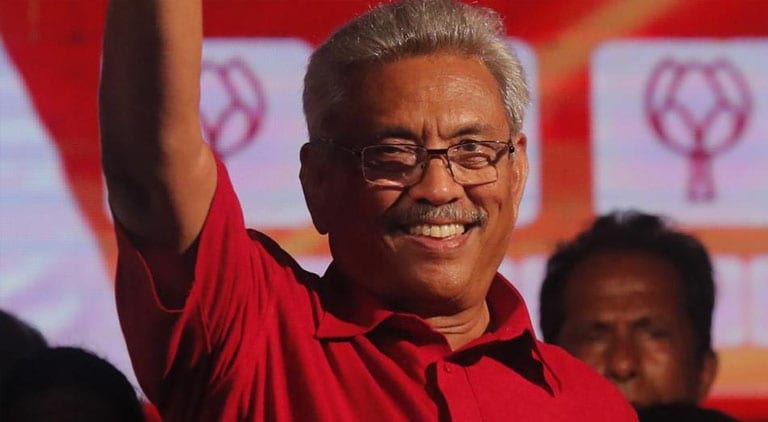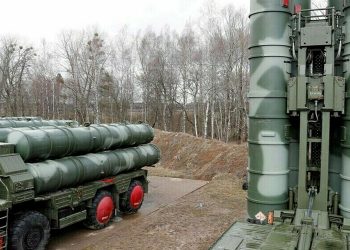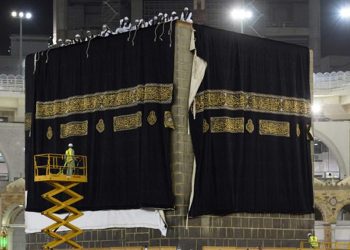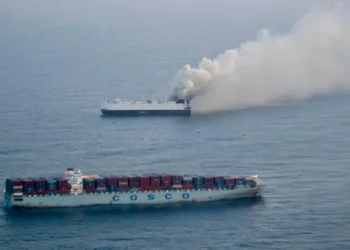COLOMBO: Gotabaya Rajapaksa, who spearheaded the brutal crushing of the Tamil Tigers 10 years ago, stormed to victory on Sunday in Sri Lanka’s presidential elections.
Rajapaksa conducted a nationalist campaign with a promise of security and a vow to crush religious extremism in the Buddhist-majority country following the April 21 suicide bomb attacks blamed on a homegrown terror group.
His triumph will, however, alarm Sri Lanka’s Tamil and Muslim minorities as well as activists, journalists and possibly some in the international community following the 2005-15 presidency of his older brother Mahinda Rajapaksa.
Mahinda, with Gotabaya effectively running the security forces, ended a 37-year civil war with Tamil separatists. His decade in power was also marked by alleged rights abuses, murky extra-judicial killings and closer ties with China.
Gotabaya, a retired lieutenant-colonel, 70, nicknamed the “Terminator” by his own family, romped to victory with 51.9 percent of the vote, results from the two-thirds of votes counted so far showed.
Rajapaksa’s main rival, the moderate Sajith Premadasa of the ruling party, trailed on 42.3 percent, The 52-year-old conceded the race and congratulated Rajapaksa.
On Sunday three cabinet members resigned including Finance Minister Mangalar Samaraweera. The final result was expected later on Sunday with Rajapaksa due to be sworn in on Monday. Turnout was over 80 percent.
READ MORE: Gunmen fire on buses carrying Muslim Sri Lankan voters
Premadasa had strong support in minority Tamil areas but a poor showing in Sri Lanka’s Sinhalese heartland, a core support base where Rajapaksa won some two-thirds of the vote.
Saturday’s poll was the first popularity test of the United National Party (UNP) government of Prime Minister Ranil Wickremesinghe.
Wickremesinghe’s administration failed to prevent the April attacks despite prior and detailed intelligence warnings from India, according a parliamentary investigation.
Premadasa also offered better security and a pledge to make a former war general, Sarath Fonseka, his national security chief, projecting himself as a victim seeking to crush terrorism.
He is the son of assassinated ex-president Ranasinghe Premadasa who fell victim to a Tamil rebel suicide bomber in May 1993.
Gotabaya is adored by the Sinhalese majority and the powerful Buddhist clergy for how he and Mahinda ended the war in 2009, when 40,000 Tamil civilians allegedly perished at the hands of the army.
Under his brother, Gotabaya was defence secretary and effectively ran the security forces, allegedly overseeing “death squads” that bumped off rivals, journalists and others. He denies the allegations.
This makes the brothers detested and feared among many Tamils, who make up 15 percent of the population. Some in the Muslim community, who make up 10 percent, are also fearful of Gotabaya, having faced days of mob violence in the wake of the April attacks.
READ MORE: Sri Lanka election chief censors state TV ahead of polls

































